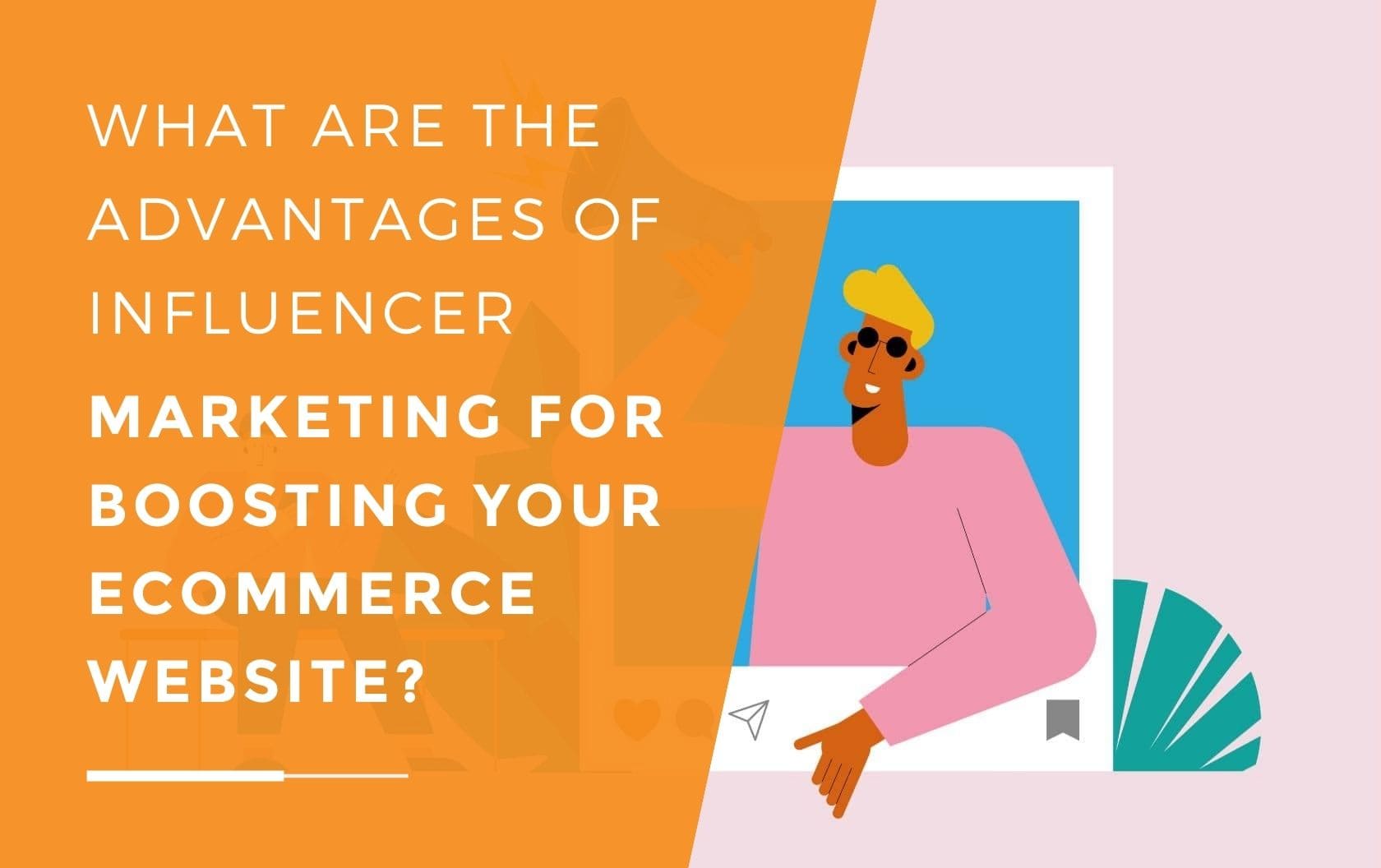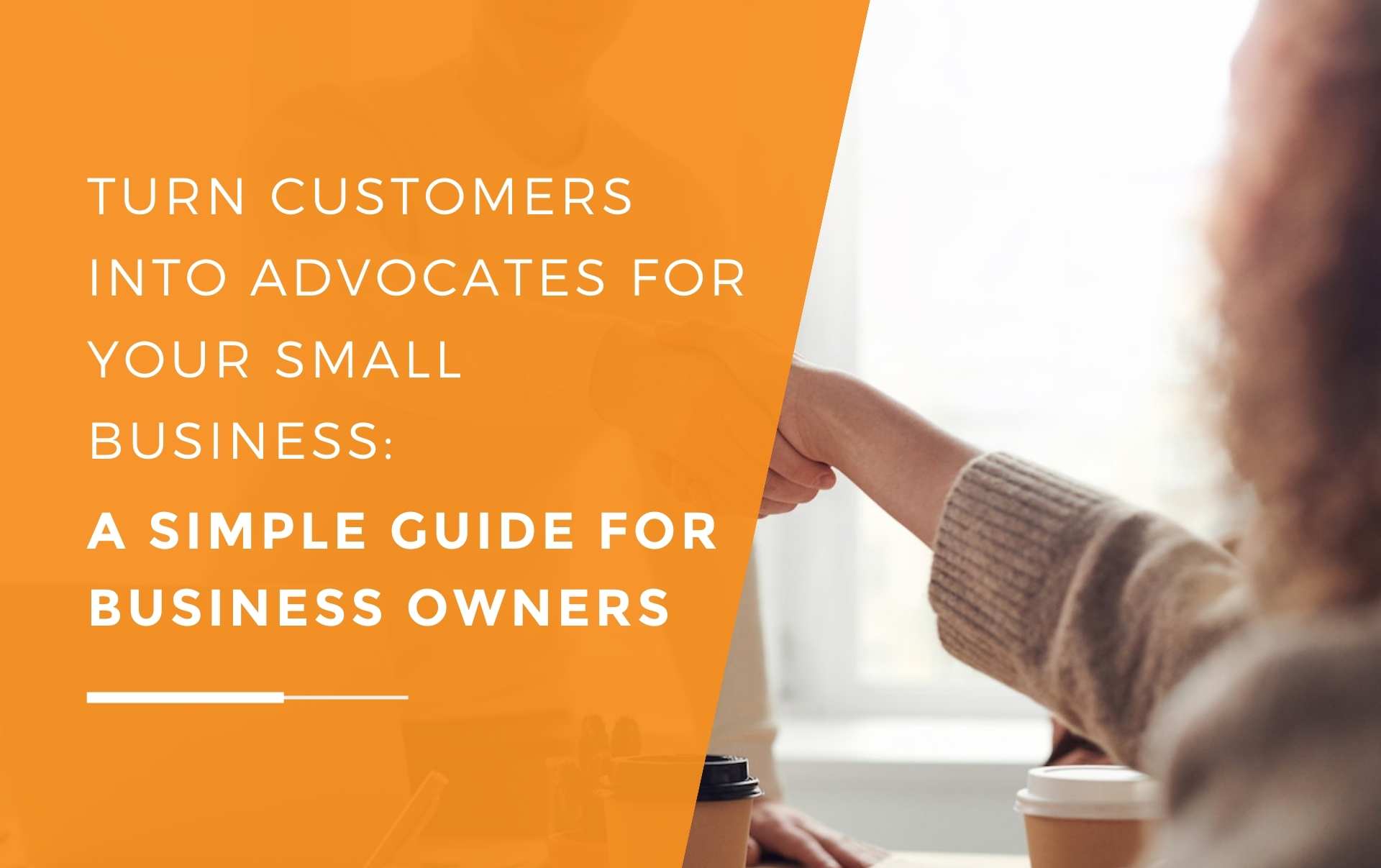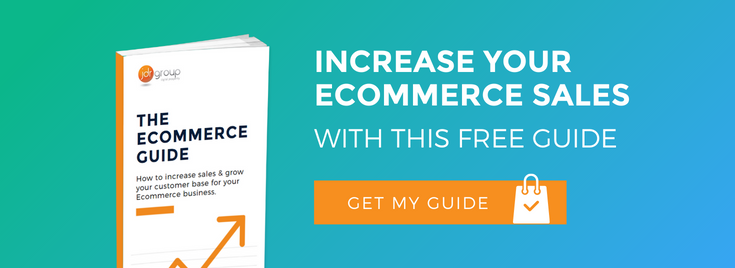The Rise Of Influencer Marketing - A New Way To Generate Leads
by Kerry Baker on 07-Jun-2023 12:00:00

The digital B2C consumer market is increasingly trend-driven, and one of the main catalysts for trends are influential social media users based on Instagram, YouTube, or TikTok, who promote various products and services to their extensive follower base, who seek out and trust their opinions.
In this competitive and fast-moving environment, it's crucial for businesses to find innovative ways to engage consumers and stand out from the crowd. Traditional ‘slow burn’ marketing and sales tactics may not be responsive enough for businesses to capitalise on emerging trends. In this article, we'll delve into the concept of influencer marketing and explore how it can help businesses generate leads and make sales more effectively.
What Is Influencer Marketing?
Influencer marketing is a strategic approach to social media marketing that involves partnering with influential individuals, known as influencers, who have a strong online presence in a particular niche or industry. These influencers share their knowledge, opinions, and recommendations with their audience, acting as trusted advisors that help consumers make informed decisions when choosing products and services to purchase.
Influencer marketing works on the same principle as online reviews and customer referrals (a prospect trusts your business because it is endorsed by a person whose opinion they trust) but is more targeted and often more effective because it enables businesses to reach large audience segments through influencers who already have a faithful following interested in their expertise.
Success Stories: How Influencer Marketing Generates Leads
Numerous large-scale businesses have turned to influencer marketing to increase brand exposure and generate leads. For example, the online fashion aggregator ASOS has collaborated with various fashion influencers who regularly create social media video content featuring ASOS clothing and accessories. This partnership not only promotes the ASOS brand but also attracts a more engaged customer base among younger Gen Z consumers.
Another example is fitness brand Myprotein, which partners with fitness influencers to create workout routines and share tips – to a predominantly Gen Y Millennial market – while showcasing Myprotein's products indirectly and increasing brand saturation in the health nutrition market.
Many of the influencers that promote leading brands have a follower base ranging from the hundreds of thousands to hundreds of millions and are unlikely to promote the products of a small-scale SME. A more realistic prospect for independent B2C businesses is micro-influencer marketing.
Micro-Influencer Marketing – Influencer Marketing For Small Businesses
Micro-influencer marketing is a subset of the practice that leverages individuals with a smaller following, typically between 1,000 and 50,000, to promote products or services. The benefits of working with micro-influencers for independent Ecommerce brands and SMEs are numerous, including higher engagement rates, lower costs, and a more targeted audience. These individuals often have devoted followings within very specific niches, making them ideal brand partners for smaller companies looking to reach a specific or local demographic. Successful micro-influencer marketing campaigns are built on trust, authenticity, and relevance, and require a deep understanding of both the target audience and the influencer's specific interests and followers.
The Benefits Of Influencer Marketing
The use of influencers within a broad-based digital marketing strategy offers several benefits for businesses:
1. An Increase In Consumer Engagement
Influencer marketing allows a more personalised connection between businesses and consumers. By partnering with influencers that consumers trust, businesses can establish stronger and more credible relationships with their target audience and use strategies such as inbound marketing to nurture those relationships.
2. Better Brand Awareness
Aligning with a credible influencer can bolster your brand image through association, potentially heightening brand awareness and promoting social sharing. Business owners can seize this opportunity by implementing retargeting campaigns to engage users who interact with the influencer initiative. It's not merely the influencer partnership but the strategic application of digital marketing tactics that makes the difference.
3. Improved ROI
Influencer marketing focuses on a specific, engaged audience. When integrated with a suitable marketing strategy, it can potentially accelerate conversions, and enhance marketing ROI.
A Bright Future For Influencer Marketing
Influencer marketing, when aligned with a well-crafted marketing/social media strategy, can be an effective tool for creating genuine connections with consumers and driving sales. For guidance on integrating influencer marketing into your strategic social media strategy, contact one of our Social Media Marketing team today.
Image Source: Canva
- Inbound Marketing (SEO, PPC, Social Media, Video) (831)
- Strategy (368)
- Sales & CRM (197)
- Marketing Automation & Email Marketing (190)
- Business Growth (168)
- Website Design (162)
- Hubspot (141)
- Lead Generation (117)
- Google Adwords (100)
- Content Marketing (94)
- Conversion (53)
- Case Studies (49)
- News (47)
- Ecommerce (39)
- Webinars (34)
- SEO (26)
- AI (20)
- Events (19)
- LinkedIn Advertising (17)
- Video (17)
- Video Selling (15)
- Software training (13)
- Niche business marketing (11)
- The Digital Prosperity Podcast (10)
- HubSpot Case Studies (7)
- Facebook Advertising (6)
- Web Design Case Studies (1)
- February 2026 (2)
- January 2026 (12)
- December 2025 (15)
- November 2025 (6)
- October 2025 (17)
- September 2025 (16)
- August 2025 (14)
- July 2025 (14)
- June 2025 (5)
- May 2025 (19)
- April 2025 (15)
- March 2025 (13)
- February 2025 (13)
- January 2025 (8)
- December 2024 (2)
- November 2024 (4)
- October 2024 (21)
- September 2024 (4)
- August 2024 (8)
- July 2024 (14)
- June 2024 (16)
- May 2024 (25)
- April 2024 (15)
- March 2024 (18)
- February 2024 (5)
- January 2024 (10)
- December 2023 (6)
- November 2023 (10)
- October 2023 (13)
- September 2023 (12)
- August 2023 (14)
- July 2023 (13)
- June 2023 (14)
- May 2023 (15)
- April 2023 (13)
- March 2023 (14)
- February 2023 (13)
- January 2023 (15)
- December 2022 (13)
- November 2022 (6)
- October 2022 (8)
- September 2022 (22)
- August 2022 (15)
- July 2022 (13)
- June 2022 (16)
- May 2022 (14)
- April 2022 (16)
- March 2022 (17)
- February 2022 (11)
- January 2022 (8)
- December 2021 (6)
- November 2021 (7)
- October 2021 (11)
- September 2021 (10)
- August 2021 (7)
- July 2021 (7)
- June 2021 (4)
- May 2021 (4)
- April 2021 (1)
- March 2021 (3)
- February 2021 (5)
- January 2021 (4)
- December 2020 (7)
- November 2020 (6)
- October 2020 (5)
- September 2020 (9)
- August 2020 (18)
- July 2020 (17)
- June 2020 (17)
- May 2020 (10)
- April 2020 (21)
- March 2020 (24)
- February 2020 (21)
- January 2020 (12)
- December 2019 (23)
- November 2019 (12)
- October 2019 (14)
- September 2019 (16)
- August 2019 (15)
- July 2019 (13)
- June 2019 (6)
- May 2019 (8)
- April 2019 (4)
- March 2019 (2)
- February 2019 (2)
- January 2019 (2)
- December 2018 (3)
- November 2018 (24)
- September 2018 (11)
- August 2018 (9)
- June 2018 (3)
- May 2018 (6)
- April 2018 (14)
- March 2018 (12)
- February 2018 (16)
- January 2018 (15)
- December 2017 (15)
- November 2017 (18)
- October 2017 (23)
- September 2017 (19)
- August 2017 (28)
- July 2017 (27)
- June 2017 (25)
- May 2017 (18)
- April 2017 (17)
- March 2017 (16)
- February 2017 (17)
- January 2017 (14)
- December 2016 (21)
- November 2016 (27)
- October 2016 (25)
- September 2016 (16)
- August 2016 (20)
- July 2016 (19)
- June 2016 (14)
- May 2016 (20)
- April 2016 (24)
- March 2016 (22)
- February 2016 (28)
- January 2016 (27)
- December 2015 (28)
- November 2015 (19)
- October 2015 (9)
- September 2015 (12)
- August 2015 (5)
- July 2015 (1)
- June 2015 (10)
- May 2015 (3)
- April 2015 (11)
- March 2015 (14)
- February 2015 (15)
- January 2015 (12)
- December 2014 (2)
- November 2014 (23)
- October 2014 (2)
- September 2014 (2)
- August 2014 (2)
- July 2014 (2)
- June 2014 (7)
- May 2014 (14)
- April 2014 (14)
- March 2014 (7)
- February 2014 (2)
- January 2014 (7)
- December 2013 (9)
- November 2013 (14)
- October 2013 (17)
- September 2013 (3)
- August 2013 (6)
- July 2013 (8)
- June 2013 (4)
- May 2013 (3)
- April 2013 (6)
- March 2013 (6)
- February 2013 (7)
- January 2013 (5)
- December 2012 (3)
- November 2012 (2)
- September 2012 (1)
Subscribe by email
You May Also Like
These Related Blogs

What Are The Advantages Of Influencer Marketing For Boosting Your Ecommerce Website?
Online visibility is an intractable challenge for B2C Ecommerce businesses.

Turn Customers Into Advocates For Your Small Business: A Simple Guide For Business Owners
The Holy Grail of marketing isn’t just to drive traffic to your website, or even to make first-time sales (although these are essential starting point …

Why Marketing Should Be Discussed In Your Sales Meetings!
Your business probably has sales meetings. (Right now being done via Zoom no doubt) Most companies do, as it's seen as a very important part of helpin …




